Girls’ access to education
creates a virtuous cycle
– even in crisis-ridden Somalia
Girls’accesstoeducationcreatesavirtuouscycle– evenincrisis-riddenSomalia
The tenth UN International Day of the Girl Child will be celebrated on 11 October
The United Nations International Day of the Girl Child calls attention to the fact that girls’ access to education also helps families, communities and society. In Somalia, Finn Church Aid works to promote girls’ access to education and their inclusion in peace work.
HAWA, 16, does not take education for granted. In Somalia, studying is something many young people Hawa’s age can only dream of. Hawa’s dream is to learn English properly.
“That way I could talk to all kinds of people,” she explains to Finn Church Aid (FCA) at her school, Mama Gedia.
For children and young people in poor and fragile Somalia, there’s very little room for dreaming. Decades of conflict have left the country practically devoid of infrastructure. To make matters worse, the country is gripped by a devastating and protracted drought that threatens food security.
In September, the World Food Programme warned of a risk of famine in the region. The war in Ukraine is disrupting grain imports, inflation has more than doubled the price of food in some places, and local conflicts and terrorist attacks weaken the security situation. Tens of thousands of people have been forced to leave their homes due to violence, or lost their livelihoods as a result of the drought. All of this contributes to a cycle of poverty.
Without external assistance, Hawa would not be able to go to school as her parents can’t afford school fees. With FCA’s support, they can pay Hawa’s school fees, learning materials or school uniforms.
Hawa calls her teachers her role models. She appreciates their encouragement and the high quality of teaching provided.
“I’m full of energy and I want to use this opportunity to get an education,” she says. “When I grow up, I want to work for a humanitarian organisation.”
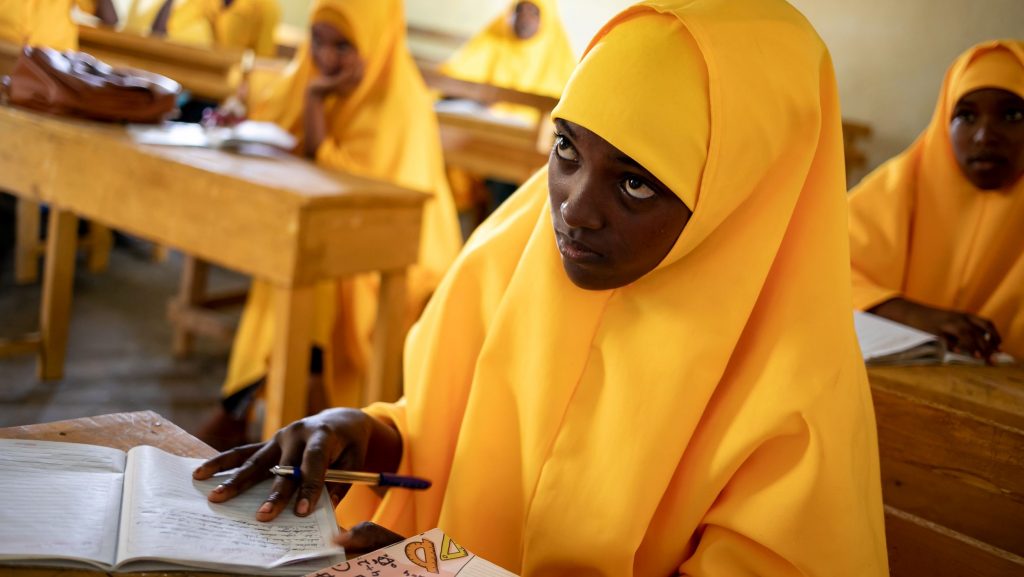
THE TENTH UN International Day of the Girl Child will be celebrated on 11 October. While attention over the past ten years has been called to the importance of offering girls more opportunities, much work remains to be done. Climate change and the COVID-19 pandemic have further increased the burden on girls and threaten to reverse progress already made.
But, as the UN points out, with adversity comes resourcefulness, creativity, tenacity, and resilience. On its theme day website, the UN points out that hundreds of millions of girls have shown time and time again that given the skills and the opportunities, they can be the changemakers driving progress in their communities.
Finn Church Aid works to support girls’ access to education by distributing school uniforms and supplies to those in the most vulnerable position. FCA also supports parents’ livelihoods, organises awareness campaigns, builds schools and classrooms, and supplies furniture and teaching materials.
“In Somalia, the education sector is facing enormous challenges, starting with teachers’ competence and the lack of a sufficient and accessible school network”, says Ikali Karvinen, FCA’s Country Director in Somalia. “School buildings are in poor condition, groups are too big, and teachers lack proper training.”
While overcrowded classes are a problem in many schools, dropping out of school is another big issue, Karvinen says. In most cases, dropping out is associated with poverty. From an early age, children have to help their families to earn a living.
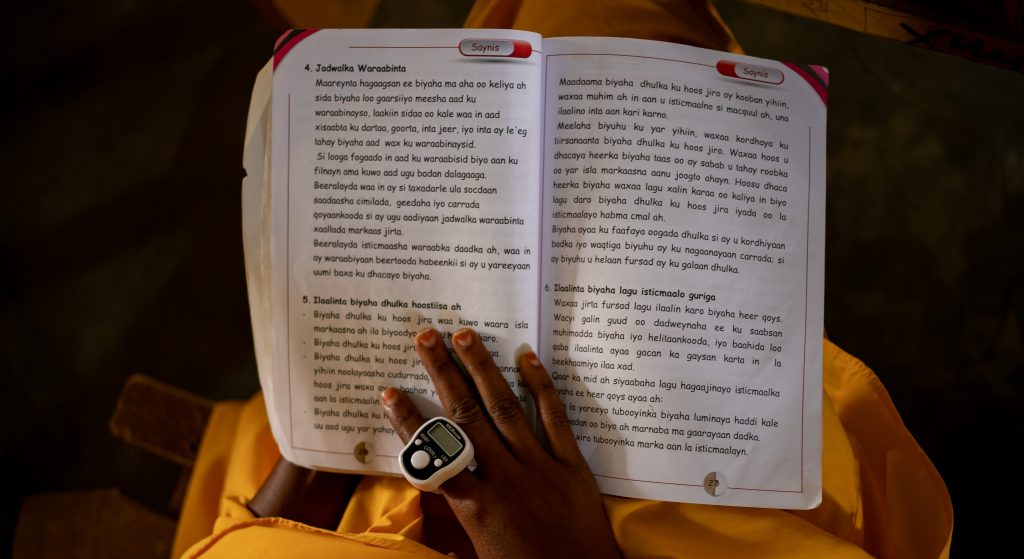
IN DIFFICULT CIRCUMSTANCES, girls are in a particularly vulnerable position for various reasons. According to Karvinen, there are cultural and traditional as well as structural reasons for this. Girls’ education is not considered as important as boys’, because girls are expected to stay at home and help parents with household chores and with earning a living.
Many families refuse to send girls to school because the journey to school is unsafe. FCA is contributing to making schools safer. In Hawa’s school, Mama Gedia, FCA created a channel that pupils can use to report threatening situations to teachers.
For girls, some of the reasons for dropping out can be very simple: the lack of hygiene facilities or single-sex toilets can be a significant issue for teenage girls. To reduce dropout rates among girls, it is important to provide relevant health information, organise proper sanitary facilities and make sanitary pads available.
In Karvinen’s opinion, it’s also crucial to raise community awareness of girls’ rights to education and the positive effects it has on families, communities and the entire country.
“Generation after generation of dropouts and a growing number of people with no education will generate an intellectual deficit. This will make the country increasingly dependent on external aid provided by international organisations, both on a shorter and longer horizon.”
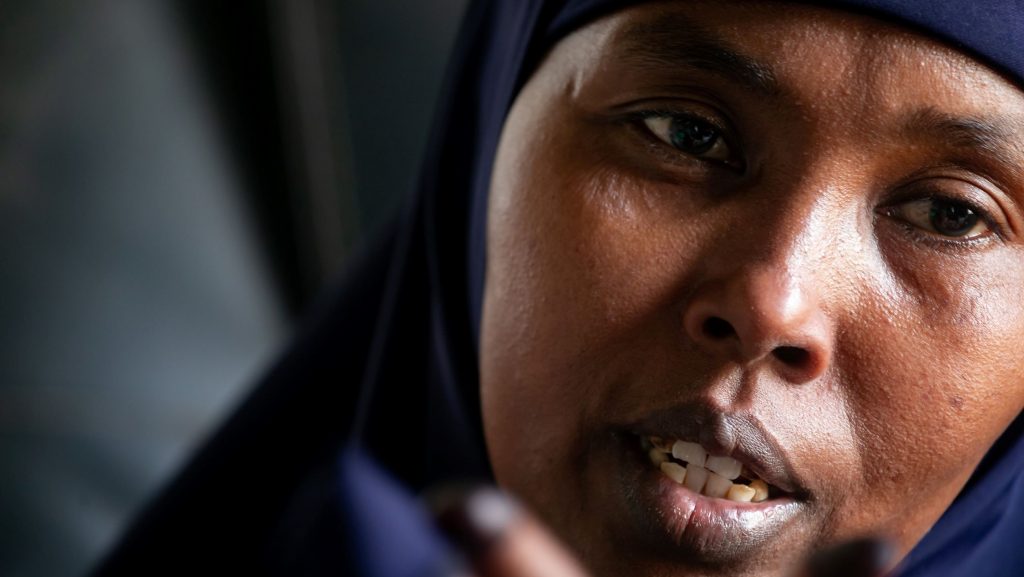
LUL MOHAMED NUR, headteacher at Mama Gedia school is one of the 16-year-old Hawa’s role models. According the school principle, there are now more girls than boys in the school.
“This is the result of our tireless campaigning to make families understand why sending girls to school is important. It seems that the community has heard and accepted our message.”
Abdullahi Moallin Ali, chairman of the community’s education committee, agrees that campaigning significantly contributed to the change in attitudes. More and more families decided to send their children to school after they found out that they don’t have to pay school fees or pay for school uniforms or learning materials.
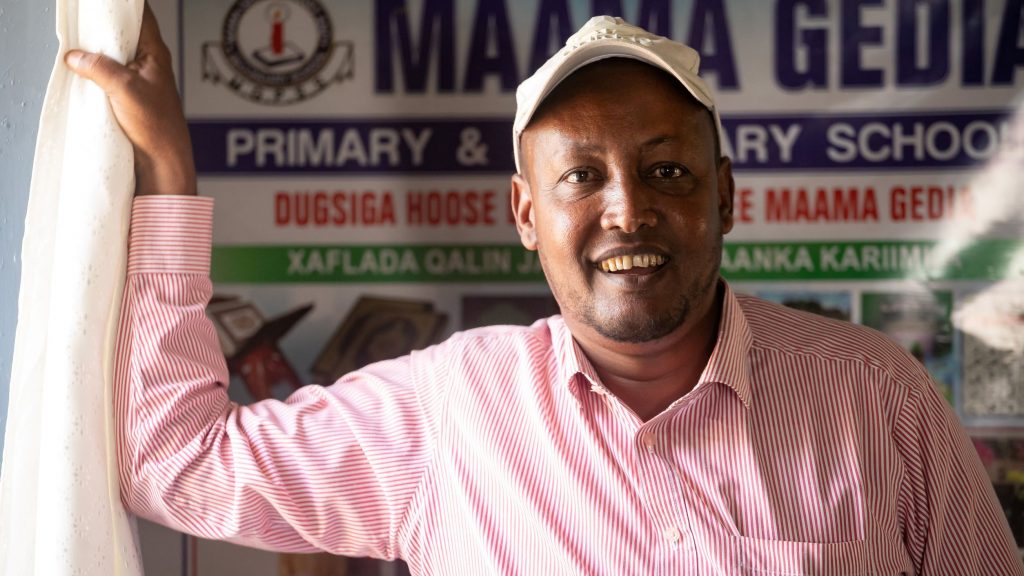
Children themselves can also feel nervous about going to school. 10-year-old Suleqo thinks it is important that all children regardless of gender have access to education, and she wants all parents to give their children equal opportunities. At first this little albino girl was reluctant to go to school herself.
“At first she resisted, but now she’s used to going to school and she likes it,” her mother Hamaro Mohamed Nur explains.
Because of her albinism, Suleqo’s vision is impaired. Her teacher placed her near the blackboard so that she can see what teachers write.
“Suleqo became much more interested in school after she received her school uniform and learning materials. Now she has plenty of energy and she really likes her teachers,” Suleqo’s mother says.
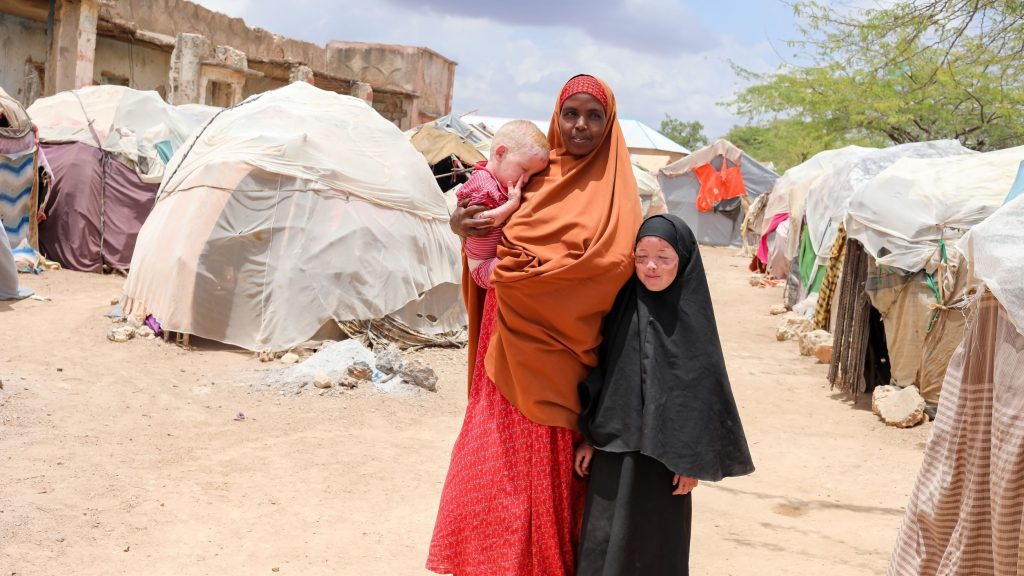
ACUTE CRISES tend to divert attention from long-term goals. In Somalia, famine threatens almost seven million people, or half of the country’s population.
Karvinen emphasises that while the help of the international community is vital in an acute crisis, it is equally important not to lose sight of the long-term objectives.
Finn Church Aid’s work focuses on peacebuilding; this includes supporting the national reconciliation process and inclusive local government. Other key focus areas include the promotion of education and livelihoods. In Somaliland, FCA has supported two vocational schools with the incorporation of career counselling and entrepreneurship education into the curriculum. With support from FCA, students have been encouraged to pursue entrepreneurial activities.
During the COVID-19 pandemic, FCA built learning facilities in hard-to-reach areas and provided training to teachers to allow children to stay in school. FCA helped build 10 new temporary schools and 16 renovated classrooms in the cities of Baidoa, Hudur and Elbarde. Almost half of the students in these schools are girls.
Peace work does not exist in a vacuum; it is part of something bigger, Karvinen underlines. FCA works to promote the inclusion of young people and women in peacebuilding by organising events that give marginalised groups an opportunity to be heard. FCA also supports the BAYWAN network of women’s organisations in southwest Somalia.
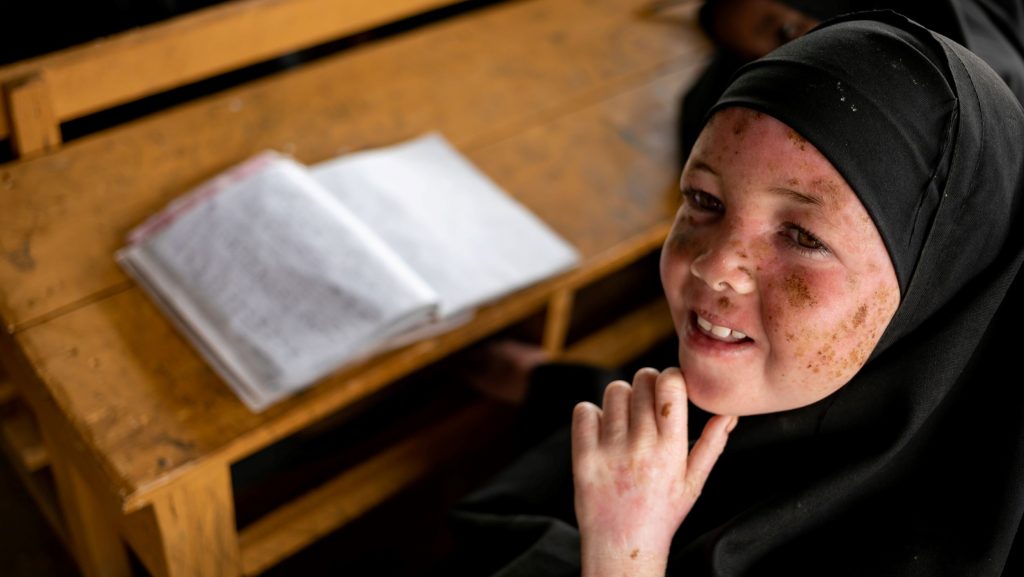
THERE IS ALWAYS hope, even in the face of famine, violence and insecurity. FCA’s Karvinen underlines the importance and impact of small changes and improvements. A simple way to improve safety in schools is to build a fence around the area and to have access control in place.
“School is the safest place for many children. Being at school protects children from being exploited as child labour or ending up in the hands of terrorist organisations.”
According to Karvinen, children who go to school enjoy learning new things, which increases their satisfaction and creates optimism about the future. Education makes children and young people better equipped to make healthier choices in life. The repercussions are significant: as people become healthier and more educated, they will be able to accept responsibility for services, security and respect for human rights in their country.
Education can also empower girls to put an end to harmful traditional practices. During the COVID-19 lockdown, there were reports of an increase in female genital mutilation.
“Educated girls and women are instrumental in the fight against this human rights violation,” Karvinen notes.
Providing educational opportunities for girls is of paramount importance.
“An educated woman wants her children to receive an education. This is the virtuous cycle that FCA wants to reinforce,” Karvinen concludes.
Help girls
to receive
an education
Help girls
to receive
an education
Your donation allows Finn Church Aid to e.g.:
- distribute school supplies and school uniforms to children
- provide income opportunities for parents so that children can go to school
- organise awareness campaigns designed to help parents understand how important education is for their children
- build schools and classrooms, supply blackboards, desks, textbooks and teaching materials for schools